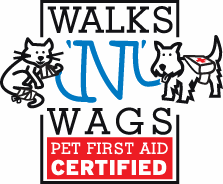I recently made a salad and toasted some pine nuts... then I thought... Maydel would love these. So I did a quick google to see what nuts were poisonous and thought I should share with you a really neat article originally posted here by petinsurance.com
Toxic Poisoning and Upset Stomach a Common Symptom
Dog owners, beware of rewarding your four-legged companion with a variety of salty treats in the form of nuts.
Nuts are one more "DO NOT EAT" item to add to Fido's list of toxic or harmful substances. Certain types of nuts can cause toxic poisonings, an upset stomach or an obstruction in your dog's gastrointestinal tract which can lead to life-saving surgery and unexpected veterinary expenses.
According to VPI Pet Insurance, walnut poisoning is one of the most common claims for toxic ingestion. The average cost to treat walnut poisoning is $315.74. The average cost to treat an upset stomach, according to VPI’s claims data, is $214.69.
Keep your pet safe and make sure the nuts listed below are out of your dog's reach.
Almonds
Dogs love the taste of almonds, particularly the flavored variety (jalapeno, barbecued, smoked, vanilla, cinnamon, etc.).
While not toxic, almonds are not easily digested can give your dog an upset stomach and create gastric intestinal distress.
Black Walnuts
Black walnuts contains a toxin called juglone which can cause a vascular disease in horses known as laminitis, but doesn't appear to cause problems in dogs. Eating black walnuts can cause gastric intestinal upset or an obstruction.
In addition, moldy black walnuts can contain tremorgenic mycotoxins which can cause seizures or neurological symptoms.
English Walnuts
English walnuts can cause gastric intestinal upset (tummy ache) or even an obstruction in your dog's body. Like black and Japanese walnuts, moldy English walnuts can contain tremorgenic mycotoxins (toxic chemical products produced by fungi) which can cause seizures or neurological symptoms.
Hickory Nuts
Hickory nuts also contain the toxin juglone that can cause laminitis in horses. Eating hickory nuts can cause the same problems associated with black walnuts: gastric intestinal upset or an intestinal obstruction. Like walnuts, moldy hickory nuts can contain tremorgenic mycotoxins which can cause seizures or neurological symptoms.
Japanese Walnuts
Japanese walnuts contain no toxicity; however, they can cause gastric intestinal upset or even an obstruction.
Like English walnuts, moldy Japanese walnuts can contain tremorgenic mycotoxins which can cause seizures or neurological symptoms.
Macadamia Nuts
Macadamia nuts are very rich in fat which can give your dog a major upset stomach and may cause pancreatitis.
In addition, these nuts are reported to contain an unknown toxic principle that may result in neurological symptoms.
Pecans
Pecans also contain the toxin juglone that can cause laminitis in horses. Feeding dogs pecans can cause gastric intestinal upset or an obstruction.
Like walnuts, moldy pecans can contain tremorgenic mycotoxins which can cause seizures or neurological symptoms.
Pistachio Nuts
Pistachios are also rich in fat and can cause your dog to develop an upset stomach. In addition, repetitive eating of pistachios can cause pancreatitis in your dog.
If you are concerned about any dangerous or toxic substances your dog may have consumed, please contact your veterinarian or the Pet Poison Helpline.*
 Monday, November 11
Monday, November 11 
















